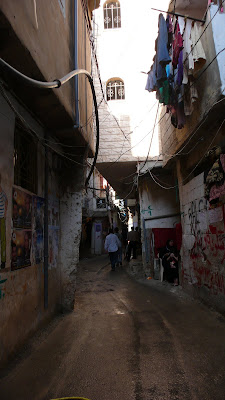
Replace the "Sex and the City 2" poster with "Rain Man" circa 1988 - Madrid
El Corte Inglés - Madrid
The Basque
Surprisingly, the Basque was filled with sameness. The men and women had similar hair cuts, piercings and style. Even the children had pseudo mullets. The biggest difficulty, alongside the enormous amount of rainy days, was language. No one spoke English, or French, and they had a certain dégoût for speaking Spanish (the ones I met anyway). I do not speak Spanish, but if spoken to, I can understand most of what is being said. The Basque people speak euskara, and unfortunately, it is difficult attempting to make up anything they said - especially in a small town. It's even more surprising that I managed to have an hour long conversation with a 70-year old coffee shop owner about the history of the town and about Moshe Dayan. Luckily, he had visual aids to help present his point, including putting his palm over his eye.
The Basque country is a beautiful place: the greenery that spread all over the mountains overlooking the beach in Donostia-San Sebastián, the hospitality of the people, and the fact that they are a wonderfully united community. Stylish teenagers, the ones you categorize into people who only seem to care about popularity, clothes, and "existentialism" were very aware of the Basque struggle and, better yet, active within community events. This was a shock, especially after coming from such a politicized place like the West Bank where many teenagers and twenty something steered away from politics and focused mostly on friends and music.
Once my time in the Basque is over, I take a trip to Barcelona for a few days before having to take my flight to Jordania from Madrid. Unfortunately, I only managed to enjoy being care free in Barcelona for a few hours because as we sat listening to Fairuz at the Arc de Triomphe, my bag, containing too many passports and id cards, got stolen. The moment I felt Palestinian (stateless) was when I had to walk into the Canadian consulate without a single piece of identification proving my citizenship and figure out how I can convince them I am Canadian in order for me to get a passport. Luckily, I found a scanned copy of my passport in my google docs (saviour) and I had my application sped up from 24-48 hours to 6 hours due to the urgent nature of the request. I managed to enjoy the rest of the day in Barcelona on foot checking out Gaudí's architecture and getting lost with my two [fantastic] companions.
































